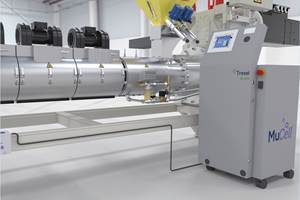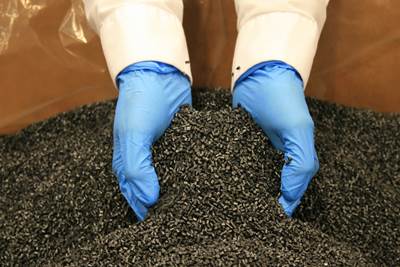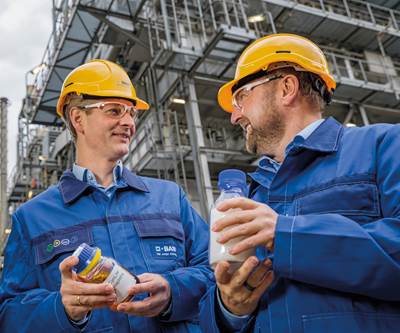Commercial-Scale Chemical Recycling at Work
Nexus founder and CEO Jeff Gold discusses the company’s chemical recycling technology and process.
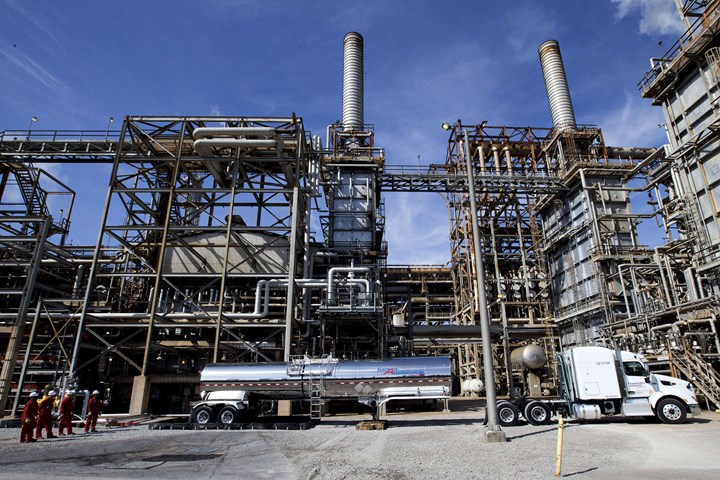
Converting partners of Nexus includes Royal Dutch Shell and Chevron Phillips among others.
Nexus, located in Atlanta, Ga., is an operational, commercially scaled converter of waste plastics to feedstocks, which in turn are converted back to virgin plastics.
The company recently announced it has entered into a strategic relationship with Wood, the global consulting and engineering company, to globally expand its advanced molecular plastics recycling business to meet significant market demand from global plastics producers. Wood will first assist Nexus with the expansion of its plant in Atlanta to better position the company for future phases of its global development.
I recently chatted with the company’s founder and CEO Jeff Gold, to find out more about the technology.
Can you give me an overview of Nexus?
Nexus is an operational, commercially-scaled converter of waste-to-virgin plastics from feedstocks that creates a 100% circular value chain. Converting partners include Royal Dutch Shell and Chevron Phillips among others. Process is environmentally friendly producing no waste water with air emissions well below established standards, end-to-end business infrastructure including engineering, software, front-end sorting, all regulatory requirements (EPA, State, Local)/ISCC Plus certification), training/safety, strategic pricing/positioning guided by financially-driven metrics. Compared to others, Nexus is lower Capex/ton installed, more efficient, 10-20% higher quality yield and able to pay for its incoming waste plastics. Operational and economically proven, Nexus has produced and shipped consistent, on-spec tanker loads to our off-take partners who blend it in their current streams and convert it to virgin plastics. Nexus is now rapidly siting plants in Europe, the U.S., and globally jointly with appropriate partners.
When was the company founded, how many employees, location, etc.?
Nexus was founded in 2008 and began through intensive research which allowed development and operation of a pilot plant that in turn validated our technical and business approach sufficiently to attract the investment that resulted in our current commercial-scale plant and follow-on expansion. Nexus is located in Atlanta, 20 minutes from the city/airport.
What’s the company’s main technology offering?
The Nexus technology is based on thermal depolymerization of incoming waste plastics within a pyrolysis reactor. The system includes a front end that manages and sorts incoming materials and is able to process a variety of waste plastics including polyethylene (PE), polypropylene (PP), and polystyrene (PS). Our system is able to accept and remove controlled levels of contamination such as paper, cardboard, moisture, and plastics like PET and PVC that do not convert to oil. Our approach is focused on achieving and maintaining a high energy and operational efficiency to attain the low CAPEX and OPEX which characterizes our commercial-scale system.
Can you detail what it means by a 100% circular waste plastics solution?
We consider our system to be a 100% circular solution for waste plastics owing to the fact that we are able to take in a variety of plastics in various forms, break them apart in a way that efficiently recovers their hydrocarbon molecules, and then send these molecules to be made into new, virgin plastics. This approach creates a cycle of production, use, and regeneration back to virgin product which makes the process truly circular. The only materials that are not recycled are those contaminants that are either not plastic (paper, wood, metal, etc.) or are plastics such as PET or nylon that do not break down into hydrocarbon molecules that can enter the regeneration cycle.
Is the technology a chemical recycling solution or is it something else?
The technology and business structure around our technology is most definitely a chemical recycling solution. As opposed to mechanical recycling, Nexus takes in waste plastics, fundamentally changes their chemical structure through the process of pyrolysis, and makes the hydrocarbon molecules that result from that process available to create new plastics or other chemical feedstocks. This cycle of production, use, and molecular regeneration allows plastics to be infinitely recycled. It is also important to note that Nexus does not compete with mechanical recyclers for feedstock in that that materials that we target and those for which our system is designed are the materials that do not work well and are not sought in mechanical recycling systems, such as lower grade films and expanded plastics (like Styrofoam).
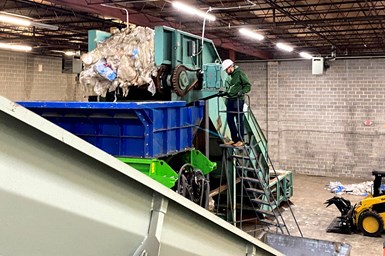
Nexus takes in a variety of plastics in various forms to process.
What type of plastics does the company’s technology process? Is there limitation in obtaining the material?
Nexus targets polyethylene (both high and low density), polypropylene, and polystyrene. Polyethylene makes up the largest amount of our incoming feedstock due to the abundance of lower grade films in both the post-industrial/commercial and to a lesser extent, the post-consumer markets that have no end-of-life application and often end up in landfills.
Obtaining suitable feedstock is one of the key components to making commercial-scale chemical recycling work. The three main elements of procuring the necessary feedstock relate to its quality, composition, and quantity. If any one of these parameters falls outside the acceptable limits for a given recycling process, it creates immediate problems along the whole value chain. Limitations on obtaining suitable feedstock will almost always fall within these three categories and can determine the success or failure of the recycling process. While there is an enormous amount of discarded plastic throughout the world, only a small amount of that is actually accessible for use as a recycling feedstock owing to high contamination levels, low recovery rates, and inadequate collection and primary sortation infrastructure. Acquiring feedstock suitable for the Nexus process and for most chemical recycling operations for that matter is a dynamic process that is influenced by many factors including those outlined here as well as variables such as virgin plastic pricing, brand owner recycled content demand, and regional production capacity. All of these factors influence pricing and availability for the feedstock needed for chemical recycling operations.
What does the future look like for Nexus?
Demand for Nexus products and the technology/business model to produce that product is extremely high. We find ourselves in a situation where there is very limited supply of the high-value pyrolysis product we make and the nearly limitless demand for that product. Nexus has proven out the viability of commercial scale chemical recycling of waste plastics at its Atlanta facility. Based on the success at our flagship operation, we are actively developing new locations in North and South America, Europe, and Asia. We have launched multiple feasibility studies with several partners aimed at siting large production facilities that can provide the recycled content being called for to meet their corporate sustainability goals.
What do you think are some of the key steps that need to happen in order to achieve a true circular economy?
The steps required to achieve a true circular economy involve participation from all stakeholders along the value chain. This starts with producers making products that can more easily be recycled (more recycling-friendly polymers, less multi-laminates, etc.). At the consumer level, having products that can more easily be separated out of single-stream programs and directed to appropriate outlets will help considerably. Another step is bolster the overall recycling collection and processing infrastructure to facilitate higher collection rates and higher quality outputs from the recycling systems. A third pillar in achieving a circular economy is to encourage more and a greater diversity of recycling solutions through legislation that fosters investment and development.
Underlying any effort to achieve a true circular economy is consumer education about the recycling process. Consumers include both private citizen and industrial/commercial users. Plastic itself provides an essential role in our society today but it is mishandled and mismanaged once it has fulfilled its original intended purpose. Increasing awareness of plastic’s benefits but also, and importantly, how to manage it responsibly is vital to developing and advancing the circular economy.
Related Content
Foam-Core Multilayer Blow Molding: How It’s Done
Learn here how to take advantage of new lightweighting and recycle utilization opportunities in consumer packaging, thanks to a collaboration of leaders in microcellular foaming and multilayer head design.
Read MoreOptical Sorting for Color Flexibility in Recycled Plastics
Aaron Industries added optical sorting to its operation, expanding capabilities to meet the color needs of customers.
Read MoreBreaking News From NPE2024
Here is a firsthand report of news in injection molding, extrusion, blow molding and recycling not previously covered.
Read MoreExtrusion Technology Extended to Injection, Enabling Up to 100% Regrind Usage
Twin-barrel (shot-pot) press can handle more regrind, offers other benefits to molders.
Read MoreRead Next
Closed-Loop Recycling Makes Old Printer Cartridges New Again
Canon runs a big recycling operation in Virginia where it collects and sorts toner cartridges, pelletizes the scrap, then molds new cartridges from the reclaim.
Read MoreRecycling: Expanding 'Circularity' through Advanced Recycling Technologies
Recycling and achieving circularity for materials is at the core of the plastics industry’s evolving sustainable business model. Advanced technologies will play a big role.
Read MoreDesigning Recycled Content: How Processors Fit In
Brand owners, material suppliers and processors weigh in on the challenges and opportunities of designing applications with recycled content.
Read More























